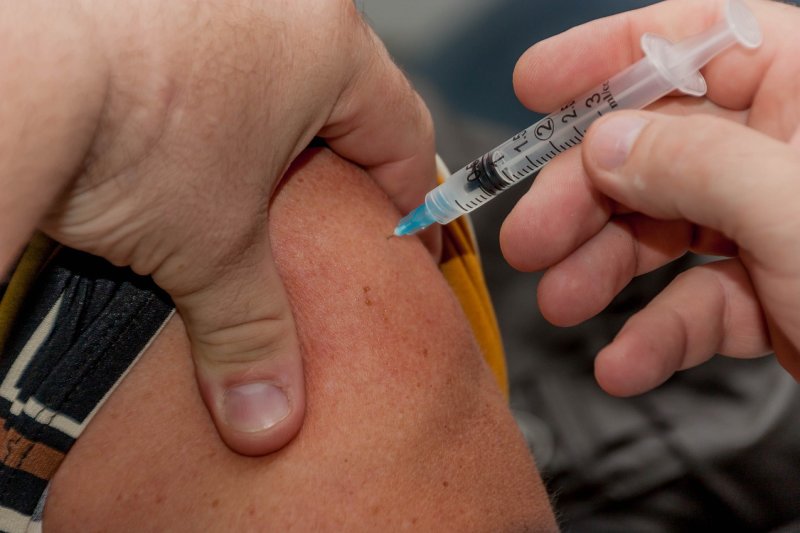A COVID-19 vaccine in China produces an immune response in early clinical trials, according to research published Tuesday. Photo by huntlh/
Pixabay
Nov. 17 (UPI) -- A vaccine against COVID-19 developed in China safely produces antibodies against the virus in 92% of the people who receive it, according to a study published Tuesday by The Lancet Infectious Diseases.
Still, antibody levels among participants receiving the shot, called CoronaVac, were lower than those seen in patients who have recovered following infection, the researchers said.
The trial was not designed to assess the effectiveness of the vaccine, however, and those studies are ongoing, they said.
"Our findings show that CoronaVac is capable of inducing a quick antibody response within four weeks of immunization by giving two doses of the vaccine at a 14-day interval," study co-author Fengcai Zhu said in a statement.
"We believe that this makes the vaccine suitable for emergency use during the pandemic," said Zhu, a researcher with the Jiangsu Provincial Center for Disease Control and Prevention in Nanjing, China.
The findings are the latest to fuel hopes that a viable vaccine against COVID-19 will become available in the short-term.
In recent days, both Pfizer and Moderna have released positive, preliminary results with their respective vaccines. More than 120 potential vaccines are being evaluated, and 48 are in clinical trials.
CoronaVac is a chemically inactivated whole virus vaccine based on a strain of the coronavirus that causes COVID-19, originally was isolated from a patient in China.
In this phase 1/2, two-part clinical trial -- the first stage of the evaluation process -- researchers administered CoronaVac to more than 700 healthy volunteers ages 18 to 59 in China between April 16 and May 5.
No participant had a history of COVID-19 infection, had not traveled to areas with high incidence of the disease and did not have signs of fever at the time the vaccine was administered, the researchers said.
In both parts of the trial, participants were split into two groups to receive one of two vaccination schedules -- either two injections 14 days apart or two injections 28 days apart.
Within each of the two groups, participants were randomly assigned to receive either a low dose of the vaccine -- 3 micrograms -- or a high dose -- 6 mcg.
Antibody responses -- proteins produced by the immune system to fight off viruses -- could be induced within 28 days of the first immunization by giving two doses of the vaccine at the lower dose 14 days apart, the data showed.
In the phase 1 portion of the study, the vaccine produced an immune response in 46% of participants, a figure that more than doubled to just over 92% during the second phase.
The vaccine used in the second phase of the study was produced using a different manufacturing process that may have enabled it to produce a stronger immune response, researchers said.
Participants in all dosing schedules and levels reported similar side effects, with pain at the injection site the most common.
Most of the reported side effects were mild and participants recovered within 48 hours.
CoronaVac can be stored in a standard refrigerator at 36 to 46 degrees Fahrenheit, which is "typical for many existing vaccines including flu," and can remain in storage for up to three years, according to study co-author Dr. Gang Zeng, of China-based Sinovac Biotech, which makes the vaccine.















